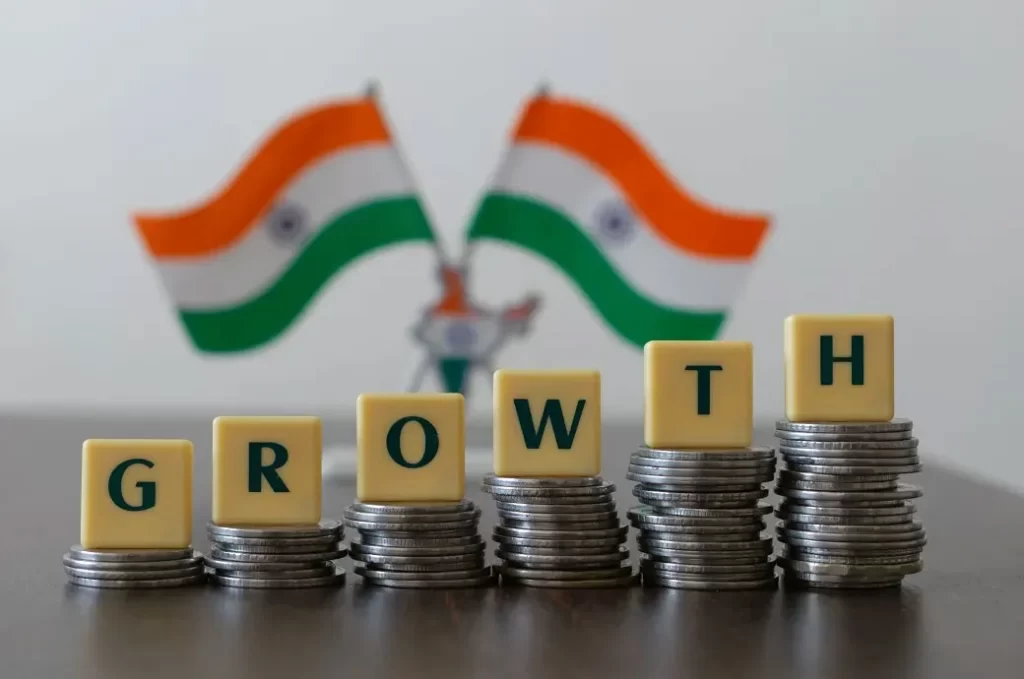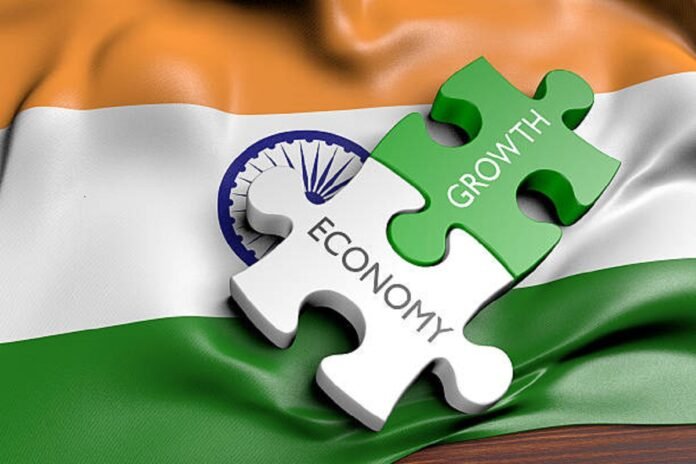In a significant revelation, India’s economic trajectory towards becoming a USD 7 trillion economy by 2030 has been unveiled in a comprehensive economic review. This revelation not only underscores India’s emergence as a formidable economic powerhouse but also signals a transformative shift in the global economic order, with profound implications for trade, investment, and geopolitical dynamics.
The Economic Review, based on meticulous analysis and projections, provides a compelling narrative of India’s economic journey over the coming decade. It outlines a roadmap characterized by sustained growth, structural reforms, and strategic initiatives aimed at unlocking the country’s vast economic potential. At the heart of this trajectory lies India’s demographic dividend, burgeoning consumer market, and robust ecosystem for innovation and entrepreneurship.
One of the key drivers propelling India towards the USD 7 trillion mark is its rapidly expanding digital economy. Fueled by widespread adoption of technology, increasing internet penetration, and government-led initiatives such as Digital India, India’s digital ecosystem is poised for exponential growth. From e-commerce and fintech to digital infrastructure and artificial intelligence, India’s digital revolution is reshaping industries, enhancing efficiency, and creating new avenues for economic prosperity.
Furthermore, India’s ambitious infrastructure development agenda is poised to play a pivotal role in driving economic growth and competitiveness. Initiatives such as Bharatmala, Sagarmala, and Smart Cities Mission are transforming India’s transportation networks, bolstering connectivity, and catalyzing urban development. These infrastructure investments not only stimulate economic activity but also lay the foundation for sustainable development and inclusive growth across regions.
Moreover, India’s proactive stance on structural reforms and ease of doing business is fostering a conducive environment for investment and entrepreneurship. From landmark reforms in taxation and bankruptcy code to liberalization of foreign direct investment (FDI) norms, India is streamlining regulatory frameworks and removing bottlenecks to business growth. This proactive approach is attracting domestic and international investors, fueling economic diversification and job creation across sectors.

Additionally, India’s focus on sustainable development and renewable energy presents significant opportunities for economic expansion and environmental stewardship. With ambitious targets for renewable energy capacity and initiatives such as the International Solar Alliance, India is spearheading the global transition towards clean and renewable energy sources. This not only mitigates environmental risks but also unlocks new avenues for innovation, investment, and job creation in the green economy.
However, amid the promising trajectory, India faces a myriad of challenges that warrant careful consideration and strategic action. Persistent disparities in income, access to basic services, and regional development pose formidable obstacles to inclusive growth and social cohesion. Addressing these challenges requires concerted efforts to enhance human capital, promote social equity, and foster sustainable development across all segments of society.
Furthermore, geopolitical dynamics and external factors pose uncertainties and risks that could impact India’s economic trajectory. From global trade tensions to geopolitical conflicts, navigating the complexities of the international landscape requires adept diplomacy, resilience, and strategic foresight. India’s ability to adapt to evolving geopolitical realities while safeguarding its economic interests will be critical in shaping its future trajectory.
In a nutshell, India’s projected ascent to a USD 7 trillion economy by 2030 represents a transformative milestone with far-reaching implications for the global economy. Anchored by demographic dividends, digital innovation, and proactive policy reforms, India is poised to emerge as a leading engine of global growth and prosperity. However, realizing this vision requires sustained commitment to inclusive development, sustainable practices, and strategic foresight to overcome challenges and seize opportunities on the path ahead. As India charts its course towards economic prominence, the world watches with anticipation, recognizing the profound impact of India’s rise on the global economic landscape.

Amidst the economic transformation, India’s commitment to social inclusivity and sustainable development remains steadfast. Initiatives aimed at poverty alleviation, healthcare accessibility, and education reform are integral to the country’s holistic development agenda. By prioritizing human capital investment and social welfare programs, India is not only fostering an environment of shared prosperity but also fortifying its resilience against socio-economic disparities. Furthermore, the emphasis on environmental sustainability and renewable energy underscores India’s dedication to addressing pressing global challenges such as climate change. As India advances towards its economic milestone, it stands poised to not only achieve unprecedented economic growth but also uphold principles of equity, sustainability, and social justice, setting a compelling example for the world to emulate.

